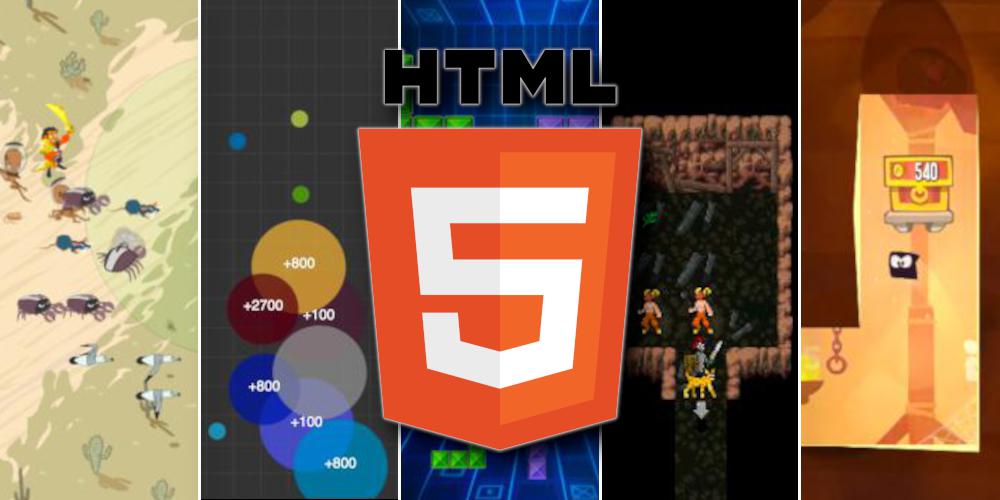
The Enduring Appeal: How Browser Games Thrive in a Post-Flash World
Remember the golden age of browser gaming? For many, that era is synonymous with Adobe Flash Player. A ubiquitous plugin, Flash powered countless hours of stick figure fights, intricate puzzle games, and quirky animations right within your web browser. It was a digital Wild West, a frontier of instant fun accessible with a single click. But like all technologies, Flash had its day, and on December 31, 2020, Adobe officially pulled the plug, ending support and effectively rendering millions of beloved games unplayable in their original form.
For a moment, it felt like a significant chunk of internet history and casual gaming culture had simply vanished. Was this the end of the line for quick, no-install browser entertainment? Not by a long shot. In fact, what many saw as an extinction event was, in reality, a catalyst for innovation. The browser gaming landscape didn’t just survive the demise of Flash; it evolved, adapted, and in many ways, thrived, thanks to modern web technologies that offer a smoother, more secure, and far more versatile experience.
The Flash Farewell: Why We Moved On
Before we dive into the vibrant present, it’s worth a quick look back at why Flash had to go. While revolutionary for its time, Flash was plagued by a host of issues that made it a liability in the modern web. Security vulnerabilities were a constant headache, making it a prime target for malware and exploits. Its performance was often sluggish, hogging system resources and draining laptop batteries with a ferocious appetite. Perhaps most critically, Flash was a closed, proprietary technology that struggled to adapt to the mobile revolution. Apple famously refused to support it on iPhones and iPads, a move that foreshadowed its eventual decline.
Developers and tech giants alike began to pivot towards open web standards like HTML5, JavaScript, and WebGL. These technologies offered similar capabilities to Flash – animation, interactivity, rich media – but did so with better performance, enhanced security, and native compatibility across all devices, from desktops to smartphones. The web was moving towards a future where plugins were no longer necessary, and Flash, despite its nostalgic charm, simply couldn’t keep up.
The HTML5 Horizon (and Beyond): A New Dawn for Browser Gaming
The transition wasn’t instantaneous, but it was inevitable. As Flash faded, HTML5 rose to prominence as the de facto standard for web content, including games. HTML5 isn’t just a markup language; it’s a suite of web technologies that enables sophisticated graphics, audio, and interactive experiences directly within the browser, without the need for any additional software. Coupled with powerful JavaScript frameworks and the hardware-accelerated rendering capabilities of WebGL, developers suddenly had a robust, open-source toolkit to create games that were faster, more beautiful, and infinitely more accessible than their Flash predecessors.
Today’s browser games leverage these technologies to deliver experiences that range from simple, addictive time-killers to surprisingly complex strategy games and even 3D adventures. The beauty of this new era is the seamlessness: you click a link, and the game just loads. No prompts to update a plugin, no security warnings, just instant gameplay. This shift has not only preserved the spirit of instant browser fun but elevated it, paving the way for a diverse ecosystem of games that cater to every taste.
The New Playgrounds: A Tour of Browser Game Genres
So, what kind of games are we talking about? The variety is staggering, proving that the ingenuity of developers knows no bounds when given the right tools.
The .io Phenomenon: Simple, Social, and Supremely Addictive
Perhaps the most recognizable face of post-Flash browser gaming is the .io genre. These games are characterized by their minimalist graphics, real-time multiplayer action, and often a single, easily grasped objective. They exploded in popularity precisely because they embody the core tenets of browser gaming: instant access, no downloads, and incredibly addictive gameplay loops.
Think of Agar.io, where you start as a tiny cell, devouring smaller players and blobs to grow, all while avoiding larger predators. Or Slither.io, which takes the classic Snake formula and injects it with a massive multiplayer twist, pitting you against dozens of other players in a frantic race to become the longest serpent. Krunker.io offers a surprisingly competent first-person shooter experience right in your browser, complete with customizable characters and various game modes. These games are perfect for quick breaks, offering competitive thrills without the commitment of a full-fledged PC game. They’re a testament to how powerful simple mechanics can be when executed well on the web.
Puzzlers and Logic Games: Sharpening Your Mind
Browser games have always been a haven for puzzle enthusiasts, and that hasn’t changed. From classic brain-teasers to innovative new challenges, the web is brimming with games designed to test your wits.
2048 remains a timeless classic, a simple yet profound number-sliding puzzle that can consume hours as you chase that elusive tile. Countless variations of Sudoku, crossword puzzles, and solitaire are readily available on various gaming portals and news websites. Beyond the classics, you’ll find innovative logic games that leverage HTML5’s capabilities for smooth animations and interactive elements. Websites like Poki and Coolmath Games (which has surprisingly shed its educational facade for a general gaming appeal) host a vast collection of these, often featuring charming graphics and intuitive interfaces. These games are ideal for a mental workout during a coffee break or a moment of quiet contemplation.
Idle and Incremental Games: The Art of Passive Progress
For those who enjoy seeing numbers go up, even when they’re not actively playing, idle and incremental games are a perfect fit. These games are designed around the concept of passive progression, where your game continues to generate resources or points even when you’re away.
The progenitor of the genre, Cookie Clicker, is still going strong, tasking you with clicking a giant cookie to earn cookies, which you then spend on grandmas, farms, and factories to generate even more cookies automatically. It’s a surprisingly deep rabbit hole of upgrades, achievements, and ever-escalating numbers. Other notable examples include Universal Paperclips, a deceptively simple game about manufacturing paperclips that evolves into a mind-bending AI simulation, and Antimatter Dimensions, a complex incremental game built around managing various dimensions of antimatter production. These games are perfect background distractions, offering a steady drip of satisfaction as your virtual empire grows.
Strategy and Simulation: Depth in the Browser
While you won’t find the graphical fidelity of a AAA RTS, browser-based strategy and simulation games offer surprising depth and complexity. Developers are pushing the boundaries of what HTML5 and WebGL can achieve.
Games like Townscaper (which has a fantastic web-based version) demonstrate the artistic potential, allowing players to build charming island towns with satisfying click-and-place mechanics. Simpler city-builders, tower defense games, and even turn-based tactics games can be found. Many browser-based RPGs, often leaning into the text-based or minimalist graphical style, offer expansive worlds to explore and quests to undertake without any downloads. These games prove that strategic thinking and engaging world-building don’t require hefty installations.
Retro Emulation and Archival Projects: A Blast from the Past
One of the most exciting developments in post-Flash browser gaming is the rise of in-browser retro emulation. Thanks to powerful JavaScript libraries, you can now play classic console and arcade games directly in your browser.
The Internet Archive’s Software Library is a treasure trove, hosting thousands of emulated arcade games, console titles, and even old PC software, all playable with a click. Websites dedicated to specific systems, like the NES or SNES, often offer vast libraries of ROMs playable directly in your browser. This isn’t just about nostalgia; it’s about game preservation, making classic titles accessible to a new generation without the need for specialized hardware or complex setups. It’s a wonderful way to experience gaming history.
Text-Based Adventures and Interactive Fiction: Storytelling Unbound
Before fancy graphics, there were words, and text-based adventures are experiencing a quiet renaissance in the browser. Tools like Twine allow anyone to create branching narrative games, often referred to as interactive fiction, which can be played entirely in a web browser.
These games prioritize storytelling, choice, and atmosphere over visual spectacle. From classic Zork-like parser games to modern choose-your-own-adventure narratives, they offer deep, immersive experiences that rely on the player’s imagination. Websites like itch.io are fantastic places to discover a wealth of these unique, often experimental, narrative experiences.
Why Browser Games Still Matter: Beyond Nostalgia
The continued popularity of browser games isn’t just about filling a void left by Flash. It speaks to several intrinsic advantages that make them uniquely appealing in today’s fast-paced digital world:
- Unparalleled Accessibility: This is the big one. No downloads, no installs, no patches. If you have an internet connection and a browser, you can play. This makes them perfect for any device – your work laptop, an old tablet, a public library computer – without leaving a trace.
- Instant Gratification: The barrier to entry is virtually zero. See a game you like? Click and play. This makes them ideal for short breaks, commutes (on mobile), or simply when you need a quick mental escape without the commitment of a dedicated gaming session.
- Low System Requirements: Most browser games are designed to run smoothly on a wide range of hardware. You don’t need a powerful gaming rig to enjoy them, opening up gaming to a much broader audience.
- Free-to-Play Model: While some browser games offer in-app purchases or ads, the vast majority are free to play, making them an economical source of entertainment.
- Community and Discovery: The ease of sharing links means that browser games can spread rapidly. This fosters vibrant online communities, especially around multiplayer
.iogames, and makes discovering new titles a serendipitous joy. - Creative Freedom: The open nature of web technologies allows independent developers and hobbyists to experiment and publish games with relative ease, leading to a constant influx of fresh, innovative ideas that might not find a home on traditional gaming platforms.
Finding Your Next Fix: Where to Look
So, you’re convinced and ready to dive in. Where do you start?
- Dedicated Gaming Portals: Websites like Poki.com, Friv, CrazyGames, and Kongregate (which has successfully transitioned many of its Flash-era games to HTML5 and hosts new ones) offer curated collections across various genres.
- Indie Game Hubs: itch.io is a fantastic platform for independent developers, often hosting unique and experimental browser games, including many text-based adventures and visual novels.
- Specific Game Websites: Many popular
.iogames have their own dedicated websites (e.g., Agar.io, Slither.io, Krunker.io). - Google Search: A simple search for "HTML5 games," "browser games no download," or "casual web games" will yield countless results and new discoveries.
- Game Development Communities: Keep an eye on subreddits like
r/WebGamesorr/incremental_gamesfor new releases and recommendations.
The Future of Browser Gaming: Brighter Than Ever
The evolution of browser games is far from over. As web technologies continue to advance, we can expect even more sophisticated experiences. WebAssembly (WASM) is already allowing developers to bring near-native performance to the browser, enabling more graphically intensive games and even complex 3D environments. Cloud gaming services, while still in their infancy, promise to deliver AAA titles directly to your browser, blurring the lines between traditional gaming and web-based entertainment.
The spirit of instant, accessible fun that defined the Flash era lives on, stronger and more diverse than ever. The browser is no longer just a window to information; it’s a vibrant, ever-expanding playground. So, the next time you have a few minutes to spare, don’t lament the demise of Flash. Instead, open a new tab, and discover the incredible, thriving world of browser games that are ready and waiting to entertain you, no plugins required. The future of casual gaming is here, and it’s just a click away.
